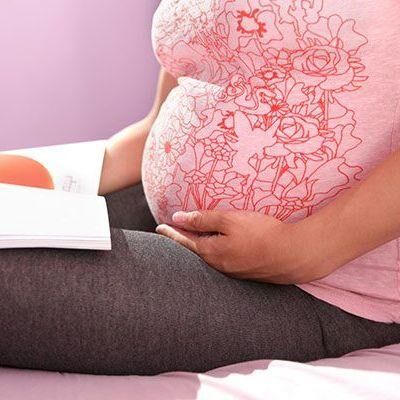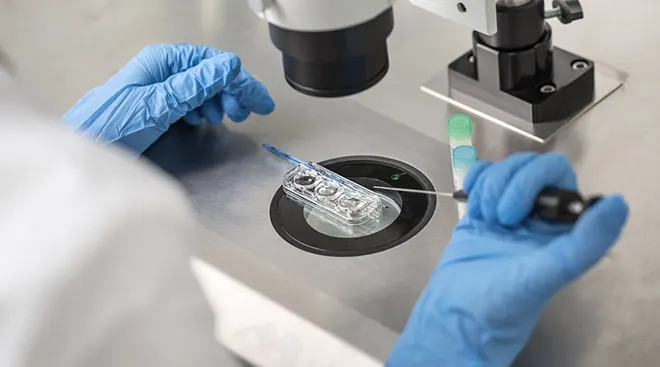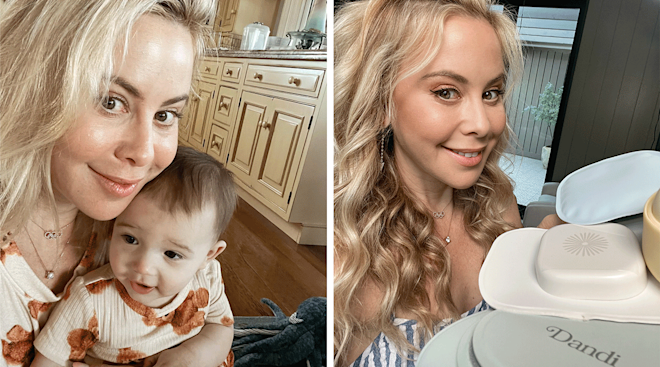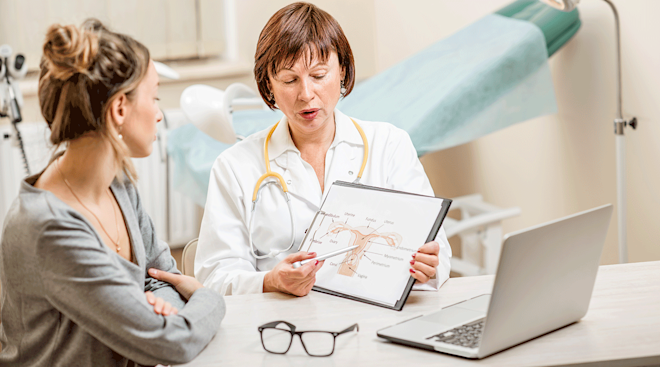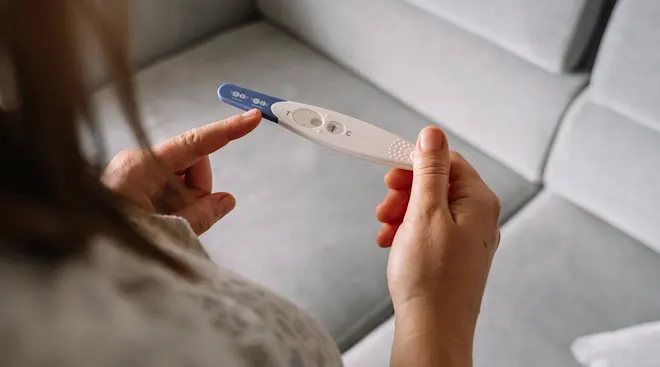Pregnant Over 35: What You Need to Know
Think back to your senior year in college — that’s the age some doctors say is ideal to have a baby from a purely biological point of view. But the reality is more and more women are well beyond their 10-year college reunion before even thinking about getting pregnant. The age of women having their first babies has steadily risen in the last 40 years, the biggest rise being in the 35- to 39-year-old age group, according to the Centers for Disease Control. In 2012, about 13 percent of births were to first-time moms ages 35 to 44.
Women over 35 worry they’re doomed to have a pregnancy with complications, stress and maybe even health problems for baby. But don’t freak out. “While much is out of your control, there are so many factors that you can control,” says Laura Riley, MD, Medical Director of Labor and Delivery in the Obstetrics Service at Massachusetts General Hospital in Boston.
Prioritize your preconception checkup
Being in the best health possible before getting pregnant is one of the most powerful steps you can take to have a healthy baby. Before you conceive, schedule a visit with your OB to discuss any medical conditions you may have, medications you’re taking (even OTC ones) and lifestyle habits you should break (like smoking and excessive drinking). You want to head into pregnancy with any problems well managed and without anything in your system that could mess with your fertility or with baby’s development.
Get a handle on preexisting conditions
“You can’t do anything about genetics, but you can do things about keeping blood sugar and high blood pressure in check,” says Samantha Butts, MD, assistant professor of obstetrics and gynecology at the Perelman School of Medicine at the University of Pennsylvania in Philadelphia. And that’s important, since moms-to-be over 35 are more likely to have conditions such as gestational diabetes and preeclampsia, both of which put you at risk for preterm delivery and other complications. Heading into pregnancy without high blood pressure or blood sugar issues can lessen your likelihood of developing those problems.
Take prenatal vitamins
Start taking a vitamin with at least 400 mcg of folic acid daily — yes, before you’re pregnant. According to the March of Dimes, taking folic acid before and during early pregnancy can prevent up to 70 percent of neural tube defects. You want to head into the crucial first 6 to 8 weeks — when organs are forming — as your best self: “That’s when things that can cause birth defects have a chance to act,” says Marjorie Greenfield, MD, a professor of obstetrics and gynecology at Case Western Reserve University School of Medicine in Cleveland.
Watch your weight
Because health problems such as diabetes and high blood pressure are more common in moms-to-be in this age group, all of the health and lifestyle recommendations for pregnant women may be even more important for them. Gaining the right amount of weight (for most women, that’s 25 to 35 pounds) can decrease your likelihood of pregnancy complications, says Mary Jane Minkin, MD, a clinical professor of obstetrics, gynecology and reproductive sciences at Yale School of Medicine in New Haven, Connecticut.
Exercise regularly
“Very few marathoners would ever run a marathon without training,” says Minkin, herself a half-marathoner. “Yet the number of women who attempt to go through labor without training is enormous.” Staying fit will not only help you through labor, but it will keep blood pressure in check and help you maintain good heart health. Plus, it could come in handy postpartum. Marisa Platt, 38, of Livingston, New Jersey, says when she was pregnant at 36, she was spinning, running, walking and eating right, and that helped her take off the baby weight quickly.
Toss out the cigarettes
Seems obvious, but about 11 percent of pregnant women in the United States still smoke. And smoking during pregnancy can cause premature birth, birth defects and infant death (not to mention mess with your fertility). This is one of those things that you_ can _control.
Get vaccinated
Some moms-to-be worry about getting vaccinated while pregnant, but as long as you follow your OB’s recommendations, vaccinations can actually protect you and baby, says Siobhan Dolan, MD, MPH, a professor of obstetrics and gynecology and women’s health at the Albert Einstein College of Medicine and Montefiore Medical Center in New York City and medical advisor to the March of Dimes. Getting the flu while pregnant can cause serious problems including premature labor and delivery, so getting a flu shot is recommended for pregnant women during flu season. A pertussis booster during every pregnancy is recommended too, Dolan says. It can help lessen baby’s risk of catching the virus, which can cause pneumonia and even death during his first few months (before he’s old enough to get his own vaccination).
Know what you can’t control
It’s a fact that women over 35 are more likely to miscarry and that their babies are more likely to have chromosomal problems than women under 35. As you get older, you have fewer eggs, and those eggs are more likely to be of lower quality and carry chromosomal defects. And while you have to accept that you’re at increased risk, it’s not inevitable that you will have problems. According to the American Pregnancy Association, women ages 35 to 45 have a 20 to 35 percent chance of miscarriage (women under 35 have a 15 percent chance). Chances of having a baby with a chromosomal condition (such as Down syndrome) is 1 in 192 at age 35 — at age 40, it’s 1 in 66, according to the March of Dimes. Quit assuming that something will go wrong and know that the odds are still good that baby will be healthy.
Get genetic counseling and consider testing
Tests can help you assess baby’s risk of having a chromosomal condition, like Down Syndrome or an inherited disease such as Tay-Sachs, but first you’ll have to figure out what kind of tests you feel comfortable having, based on your and your partner’s family health histories and your own attitude. “Genetic counseling helps women weigh risks, values and beliefs,” Dolan says. “A counselor will not say, ‘You have to do XYZ,’ but will help you clarify what is best for you.’”
The plethora of prenatal tests include both screening tests and diagnostic tests such as chorionic villus sampling (CVS) and amniocentesis, both of which carry a small risk to the fetus. There’s also a new blood test that analyzes fetal DNA found in a pregnant woman’s blood that “is a total game changer,” Greenfield says, since it’s noninvasive (meaning: no risk to baby); it’s currently only for high-risk women, including those over 35. A study in the _New England Journal of Medicine _found that this test is 10 times more accurate in predicting cases of Down syndrome than the standard blood test and ultrasound, and it reduces the number of false positive results.
Talk to other 35+ moms
Chances are you have friends who have been there, done that, and are happy to share their wisdom (not to mention hand-me-downs!). If not, connect with women who are pregnant over 35 on The Bump message boards. “I knew so many people who had experience that could help me along the way,” says Kim Santosky, an over-35 mom from West Redding, Ct. “I didn’t know what the heck I was doing!” she adds with a laugh.
“There is no denying that with advancing age, risk goes up,” says Dolan. “But it’s not certain. Women are quite empowered in the process.”
Please note: The Bump and the materials and information it contains are not intended to, and do not constitute, medical or other health advice or diagnosis and should not be used as such. You should always consult with a qualified physician or health professional about your specific circumstances.
Plus, More from The Bump:
Navigate forward to interact with the calendar and select a date. Press the question mark key to get the keyboard shortcuts for changing dates.




































